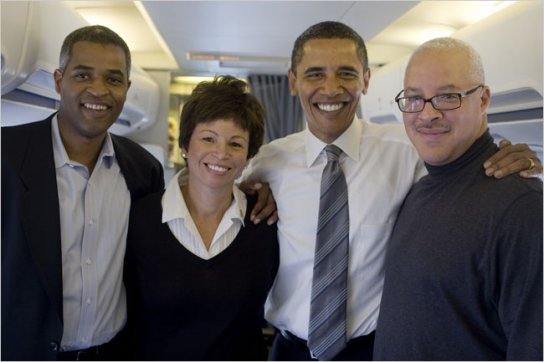Dr. Eric Whitaker, a former adviser to President Barack Obama in Illinois, is under public scrutiny after his Illinois Department of Public Health lavished state money on a nurse who is accused of taking half of it for personal use.
The nurse in question, Margaret Davis, is scheduled to go on trial in federal court in Springfield, Illinois on December 6, facing 16 counts of mail fraud and money laundering.
The indictment charges Davis siphoned off $500,000 out of more than $1,000,000 in 15 state grants and contracts showered on her during her time with the National Black Nurses Association and two other health-care groups.
Strong Connections to Obama
Under Whitaker, IDPH was cited by state auditors for weak quality controls on its grant-making function. Whitaker currently works for the University of Chicago Medical Center, former employer of Michelle Obama. Then-Senator Obama had recommended Illinois Gov. Rod Blagojevich—since impeached—hire Whitaker for the position at IDPH.
According to Illinois State Sen. Dale Righter (R-Mattoon), it’s a tale of “bureaucratic incompetence.”
“This is not uncommon, unfortunately,” Righter said. “Even in Republican administrations we’ve had issues with this. At some point, government’s big enough and there’s enough grants out there, that sooner or later you’re going to wind up giving something to someone that looks bad.”
Failed to Keep Promises
Jonathan Ingram, a health policy analyst at the Illinois Policy Institute, said this kind of corruption is rampant among such organiztions.
“These reports basically show that it’s an institutional problem with these grant-making agencies, not just a freak accident,” Ingram said. “The fact that people were embezzling grant money isn’t all that surprising. These agencies have such poor monitoring procedures that it practically begs people to do this. What’s surprising is that it was actually caught this time.”
As grants of this nature expand, it’s difficult to ensure the recipient followed through with funded activities, says Jim Dahlquist, administrative manager in the Illinois Office of the Auditor General.
“Grant subrecipient monitoring is a frequent finding in our external audit reports,” Dahlquist said. “Grant-making processes vary from one state agency to another, and we’re not in a position to compare them.”
Criticized for Lax Oversight
Ingram says the Auditor General’s office has routinely found “the IDPH doesn’t adequately document its grant monitoring and doesn’t follow prescribed accounting procedures.”
The State Auditor General’s 2008 Annual Audit Advisory found Whitaker’s IDPH “did not ensure it adequately monitored and reviewed programmatic and financial reports for 47 of 157 (29.9%) grants tested totaling $47,149,085.”
“It’s an institutional problem,” said Ingram. “They hand out this money and then don’t follow up to make sure the money is being used for legitimate purposes. The real question is how much money was embezzled that we didn’t catch?”
Righter agrees.
“Sometimes these things look bad, and there’s a reason they look bad: because they are bad,” Righter said.





